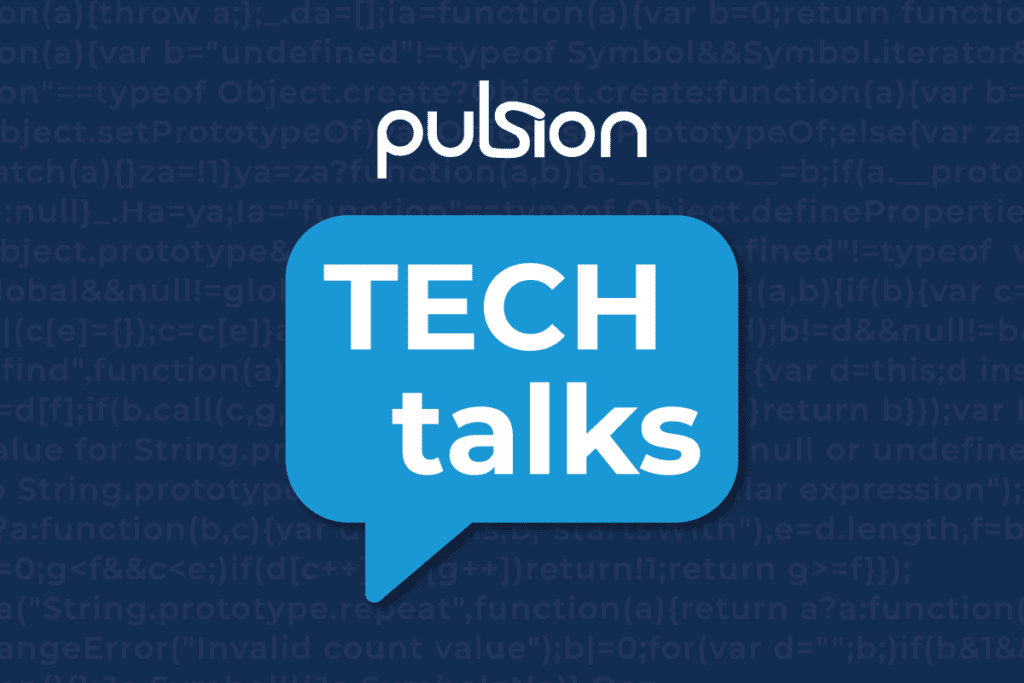Using ChatGPT to write code is a hot topic in software development. As we move into 2024 the future of ChatGPT looks promising for software developers.
As we all know, artificial intelligence has witnessed remarkable progress across various domains in recent years and custom software development has seen a lot of changes as programming languages and companies adopt the use of ChatGPT, Bard and Claude. One such breakthrough is ChatGPT, an AI technology developed by OpenAI, based on the GPT-3.5 and GPT-4 architecture. While renowned for its proficiency in natural language processing, ChatGPT can also be harnessed as a powerful tool for writing code and a reason businesses are starting to integrate ChatGPT into software development.
Will ChatGPT replace programmers? No! Can ChatGPT write code? Yes!
With rapid software development at the core of Pulsion, we understand time = money and one of the many reasons we use ChatGPT to assist in the writing of code.
This guide delves into the intricacies of utilising ChatGPT for code generation, offering insights into its capabilities and how it can enhance developers’ efficiency.
Example: In a recent React Native app development project, integrating ChatGPT with React Native proved transformative. Developers utilised ChatGPT to streamline the creation of dynamic user interfaces, generating complex React Native code effortlessly. The natural language prompts provided a seamless way to describe intricate UI requirements, allowing ChatGPT to swiftly propose accurate code snippets. This collaborative approach significantly accelerated the development cycle, enabling the team to focus on higher-level functionalities. The synergy between React Native and ChatGPT exemplifies how AI-powered code generation can enhance efficiency and creativity in app development, ultimately delivering a more intuitive and feature-rich user experience.
Understanding ChatGPT
ChatGPT operates as an AI language model, employing advanced deep learning techniques to comprehend and generate human-like text. Widely acclaimed for its ability to produce natural-sounding responses, ChatGPT finds applications in diverse areas such as chatbots, language translation, and text completion.
Coding with ChatGPT
While ChatGPT isn’t explicitly designed for code writing, it can play a pivotal role in assisting developers throughout the coding process. Leveraging machine learning algorithms, ChatGPT can analyse code snippets and generate new code based on the input it receives.
Utilising ChatGPT for Code Writing
Using ChatGPT to write code is a straightforward process that involves a few key steps. Below is a step-by-step guide on how developers can harness ChatGPT for efficient code generation:
Step 1: Choose a Programming Language
ChatGPT has the capability to generate code in various programming languages, including Python, Java, and JavaScript. Specify the desired programming language to tailor the generated code accordingly.
Step 2: Provide a Prompt
Craft a detailed prompt that serves as a description of the code you wish to generate. This prompt, written in natural language, should encapsulate the desired functionality of the code snippet. For instance, if the goal is to create a code snippet for sorting an array of integers, the prompt could be, “Write a function that sorts an array of integers in ascending order.”
Step 3: Generate Code
After presenting the prompt, ChatGPT will analyse the information and generate a code snippet that aligns with the specified description. Developers can then seamlessly integrate the generated code into their projects.
Advantages of Using ChatGPT for Code Writing
Several compelling reasons make ChatGPT a valuable tool for code writing:
- Accelerated Coding: ChatGPT swiftly suggests code solutions, significantly reducing coding time and effort.
- Enhanced Accuracy: Capable of analysing extensive code volumes, ChatGPT provides accurate suggestions, contributing to improved code quality.
- Increased Productivity: ChatGPT aids in handling complex coding tasks, enabling developers to focus on more high-level aspects of their projects.
Good Read – Chatgpt api tutorial and guide
Ethical Considerations in ChatGPT Coding
As with any advanced technology, the use of ChatGPT in coding raises ethical considerations. Developers and organisations adopting ChatGPT for code writing should be mindful of the following ethical considerations:
1. Accountability and Transparency
When incorporating ChatGPT-generated code into projects, it’s crucial to maintain transparency and accountability. Developers should be aware of the origin of the code and ensure that proper documentation is in place to facilitate collaboration and future maintenance.
2. Bias and Fairness
AI models, including ChatGPT, may inadvertently perpetuate biases present in the training data. Developers must be vigilant in identifying and mitigating biases in the generated code. Regular reviews and adjustments to the training data can contribute to reducing biased outcomes.
3. Privacy and Data Security
The use of ChatGPT in coding involves sharing information and prompts with the model. Developers should prioritise data security and privacy, ensuring that sensitive or proprietary information is not unintentionally disclosed in the process of generating code.
The Future of ChatGPT in Code Writing
As technology continues to evolve, the role of ChatGPT in code writing is likely to expand. Continuous advancements in AI research and development may lead to even more sophisticated models with enhanced capabilities for understanding complex code structures and requirements.
Developers can anticipate a future where ChatGPT becomes an integral part of the coding workflow, offering real-time collaboration and assistance. However, it’s essential to strike a balance between leveraging AI for efficiency and preserving the creative and problem-solving aspects of human programming.
Conclusion
In conclusion, ChatGPT represents a groundbreaking tool in the realm of code writing. Its ability to understand natural language prompts and generate contextually relevant code snippets provides developers with a valuable resource for enhancing productivity. However, it’s crucial to approach its use with ethical considerations in mind and to recognise its role as a complementary tool in the broader landscape of software development. As the technology progresses, developers can expect new possibilities and challenges, shaping the future of AI-assisted coding.
ChatGPT Coding FAQs
Can ChatGPT Code be Detected?
Can you detect chat gpt is a common question for people at university. However, detecting whether code was generated by ChatGPT or written by a human is a challenging task however. The model is designed to produce code that closely resembles human-written code, making it difficult to distinguish between the two. As AI technology advances, improving the sophistication of generated code, detection becomes an increasingly intricate challenge.
Can chatgpt develop an app?
ChatGPT has the capability to generate code for applications, but it’s crucial to note that this process may require additional refinement. While the model can provide a foundational structure for app-related code, human intervention is often necessary to fine-tune and ensure the code’s optimal functionality. Collaboration between developers and ChatGPT can lead to more efficient app development.
ChatGPT Copyright: Chat gpt intellectual property run into issues?
Chatgpt copyright is a hot topic. Determining the ownership of code generated by ChatGPT poses a complex legal question. Generally, intellectual property laws consider the person or organisation inputting the data or problem as the owner of the resulting code. However, given the collaborative nature of code generation involving an AI model, legal frameworks may need to evolve to address the unique challenges presented by technologies like ChatGPT.
Can ChatGPT Solve Coding Problems?
ChatGPT serves as a valuable tool in assisting with coding problems. It can provide suggestions, solutions, and even offer insights into problem-solving strategies. However, it’s important to recognise that ChatGPT complements human problem-solving skills rather than replacing them. Developers can leverage the model’s capabilities to streamline their workflow and enhance their coding proficiency.




